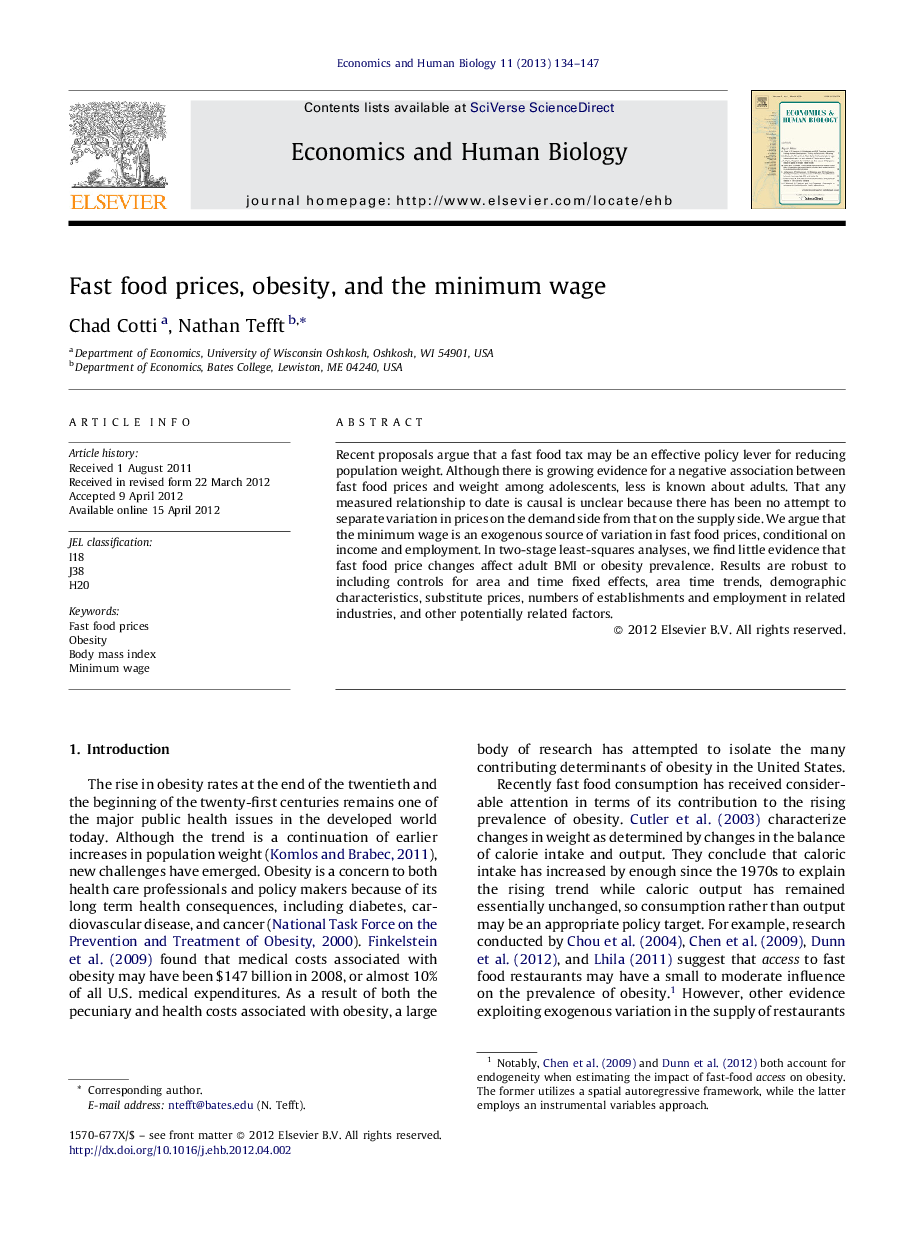| Article ID | Journal | Published Year | Pages | File Type |
|---|---|---|---|---|
| 5057117 | Economics & Human Biology | 2013 | 14 Pages |
Recent proposals argue that a fast food tax may be an effective policy lever for reducing population weight. Although there is growing evidence for a negative association between fast food prices and weight among adolescents, less is known about adults. That any measured relationship to date is causal is unclear because there has been no attempt to separate variation in prices on the demand side from that on the supply side. We argue that the minimum wage is an exogenous source of variation in fast food prices, conditional on income and employment. In two-stage least-squares analyses, we find little evidence that fast food price changes affect adult BMI or obesity prevalence. Results are robust to including controls for area and time fixed effects, area time trends, demographic characteristics, substitute prices, numbers of establishments and employment in related industries, and other potentially related factors.
⺠This paper separates demand and supply side variation in fast food prices to study weight effects. ⺠We argue that the minimum wage is an exogenous source of variation in fast food prices. ⺠We find little evidence that fast food price changes affect adult BMI or obesity prevalence. ⺠Results are robust for the entire population and important subgroups when including covariates.
